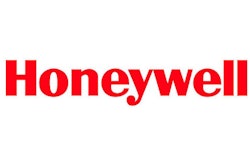The typical CEO at the biggest U.S. companies got an 8.5 percent raise last year, raking in $11.5 million in salary, stock and other compensation last year, according to a study by executive data firm Equilar for The Associated Press. That's the biggest raise in three years.
The bump reflects how well stocks have done under these CEOs' watch. Boards of directors increasingly require that CEOs push their stock price higher to collect their maximum possible payout, and the Standard & Poor's 500 index returned 12 percent last year.
Over the last five years, median CEO pay in the survey has jumped by 19.6 percent, not accounting for inflation. That's nearly double the 10.9 percent rise in the typical weekly paycheck for full-time employees across the country.
But CEO pay did fall for one group of companies last year: those where investors complained the loudest about executive pay. Compensation dropped for nine of the 10 companies scoring the lowest on "Say on Pay" votes, where shareholders give thumbs up or down on top executives' earnings.
Other measures that would highlight the income gap between CEOs and typical workers are on the way, but governance watchdogs worry that Congress will kill or dilute their strength.
"It's all out of whack right now," said Heather Slavkin Corzo, director of the AFL-CIO Office of Investment, which says CEOs for major U.S. companies make 347 times more than the average worker.
The Top Five
The highest-paid executive in the survey was Thomas Rutledge of Charter Communications, which absorbed Time Warner Cable and Bright House Networks last year to become the nation's second-largest cable operator.
His compensation totaled $98 million, about $88 million of that from stock and option awards included as part of a new five-year employment agreement. For Rutledge to collect the full amount, Charter's share price will need to rise 155 percent over six years.
CEOs typically got more than half their total compensation from stock and option grants last year.
The lesson from the rest of the top five: How lucrative the entertainment business can be.
No. 2 on the survey was Leslie Moonves at CBS, who made $68.6 million. That included $63.9 million in bonus and stock awards the company's board said he received for presiding over a 36.6 percent return for CBS shares in 2016 and for keeping CBS the top-rated network in the 2015-16 season, among other performance measures.
No. 3 was Walt Disney's Robert Iger, at $41 million. That was 6 percent less than the year before, as slowing growth resulted in a bonus cut.
Fourth-highest at $37.2 million was David Zaslav of Discovery Communications, whose networks include TLC and Animal Planet. Roughly 70 percent of that was from stock and option awards.
No. 5 was Activision Blizzard's Robert Kotick, whose compensation surged 358 percent to $33.1 million. That was almost entirely due to $24.9 million in stock awards he received as part of a new five-year employment agreement. To get them, the company's earnings per share must hit a certain level, among other financial targets.
Kotick may not make the top five this year. His 2017 salary was cut by 26 percent to $1.8 million after many shareholders said they were upset about how much Activision Blizzard executives were making. The company also eliminated his guarantee for an annual salary increase.
Nay on Pay
Kotick's salary cut demonstrates how companies will revamp pay structures in response to complaints from shareholders.
When the shareholders of Exelon met in Philadelphia for their annual meeting last spring, the energy company asked what they thought about how much CEO Christopher Crane and other executives made in the prior year. Exelon shares had lost 22 percent in 2015.
Shareholders made their displeasure known. Of shares voted, 62 percent were against the compensation or abstained. That's the highest "Say on Pay" percentage in this year's survey.
After the meeting, Exelon made several changes, including capping how much executives can receive in incentive payments if the stock loses money over the year.
Auto supplier BorgWarner had last year's second-lowest passing rate on "Say on Pay," with 60 percent of voting shares saying no or abstaining. The company made changes to its compensation program and cut a 2016 incentive award by $2.4 million to $950,000 for CEO James Verrier. His total compensation dropped 29 percent to $12.3 million last year.
At Chevron, which had the seventh-lowest "Say on Pay" passing rate, CEO John Watson's compensation fell 2 percent to $18.8 million. After talking with shareholders, the company said it will cap some bonus awards and make other changes for 2017 compensation.
Outlook
Boards of directors know they have to pay CEOs similar to what their rivals are making, if not more, compensation experts say.
"They're very aware of what their peers are doing," said John Wood, vice chairman of Heidrick & Struggles, a search firm that corporate boards hire to find their next CEO.
When a company gets a poor showing on its "Say on Pay" vote, though, "companies do take it seriously," said Kelly Malafis, a partner at Compensation Advisory Partners, an executive-compensation consulting firm. "Even if it's not failing, but below 70 or 80 percent, companies see that, and they typically respond in the next year."
That's why governance experts are concerned to see proposed legislation in Washington they say could weaken "Say on Pay." Instead of holding the vote at least once every three years, a proposal says it should happen only when executives' compensation packages have changed "materially" from the previous year. It's part of a push to loosen regulations on businesses to boost the economy.
"The Say on Pay vote has been a real game changer," said Amy Borrus, deputy director of the Council of Institutional Investors, which represents pension funds and other big investors that manage $23 trillion in assets. "We think that's a mistake."
The AP's CEO compensation study includes pay data for 346 executives at S&P 500 companies who have served two full consecutive fiscal years at their respective companies, who filed proxy statements between January 1 and May 1.
Further data is available at www.equilar.com/ap-2017.






















